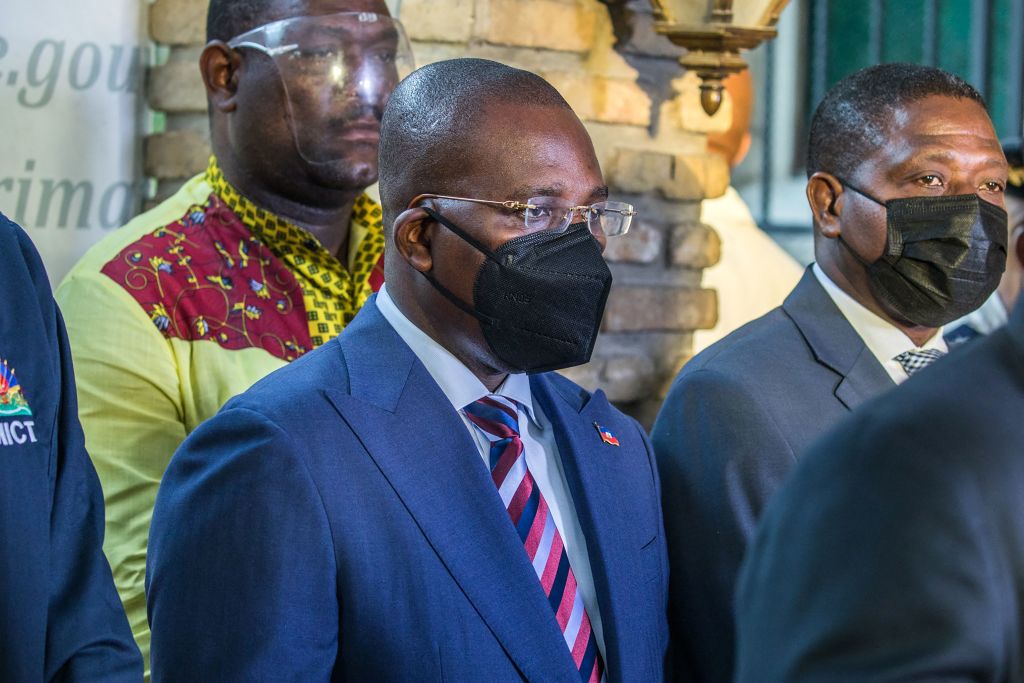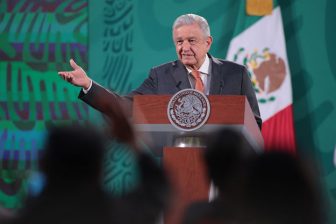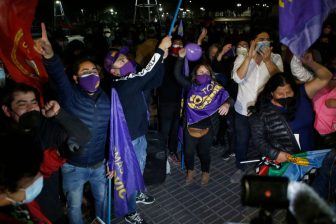The assassination of President Jovenel Moïse has prompted yet another round of commentary on the chronic instability and insecurity of life in Haiti. But the international community has, in truth, done little to alleviate these conditions over the years, massive influxes of foreign aid and declarations of humanitarian intent notwithstanding. On the contrary, American policy, above all, has been the very embodiment of instability, veering from military intervention in 1994 to a more recent policy of apparent detachment from Haitian affairs over the past few years.
However, after several centuries of foreign domination and influence in Haiti, it is unlikely that there is a completely neutral, non-“interventionist” option presently available for Washington and international partners. Passivity in the name of neutrality and legalism can itself be a form of intervention. In Haitian politics, the foreign and the domestic are too thoroughly entwined to be separated, as the political scientist Robert Fatton recently observed.
Still, foreign powers can learn from their own histories of misguided policies towards a nation still struggling to escape from the debilitating effects of colonial slavery. And stability will not be achieved without addressing the plight of Haiti’s poorest people.
A problematic track record
The pendulum swings of foreign policy towards Haiti disguise a complicated dynamic. Time and again, foreign powers have placed economic and political pressures on the Haitian state that have exacerbated domestic political conflicts, often by favoring the interests of the country’s export-oriented commercial elite with ties to North America and Europe. (Jovenel Moïse himself emerged from this same elite.) The 1915 U.S. military occupation of Haiti – justified as an effort to stabilize the country following the last assassination of a Haitian president (Vilbrun Sam), while advancing the interests of American businessmen looking to establish plantations there – is the classic case in point.
This dynamic did not end in 1934 with the withdrawal of American forces. Many Haitians believe that the United States helped throw the disputed 2011-2012 election to Michel Martelly, whose government sped up Haiti’s spiral into chaos triggered by the 2010 earthquake. More recently, the U.S. embargo of Venezuela hastened the demise of the PetroCaribe program, triggering fuel shortages in Haiti in 2019 that prompted the recent period of mass protest and lockdown.
To overlook the lessons of this very recent history would be a profound mistake. What then are the options for American policy makers at the present juncture? Military intervention or an international protectorate are out of the question on both moral and practical grounds. It is also difficult to envision Washington’s promised security assistance as more than temporary and limited.
Meanwhile, the Biden administration has clung to a mantra of pressing for elections in Haiti. Elections are needed in a country that has no functioning legislature, judiciary and executive branch — but more so are the conditions in which elections can be meaningful and possible. Another unpopular and weak executive is not what Haiti needs, and that is what it would get in the present circumstances of a fragmented political opposition and unchecked militia lawlessness in the urban centers.
A reboot
Beyond elections, Haiti needs something closer to a complete political and constitutional reboot combined with a new social contract in which international institutions support rather than ignore the country’s least well-off citizens.
First, the political and constitutional reboot. As the Haitian constitutional expert Bernard Gousse observed in the immediate aftermath of Moïse’s assassination, “there is no constitutional answer to this situation.” Foreign powers must focus on creating a diplomatic climate in which a national political accord is possible. Amy Wilentz has suggested a creative refashioning of the so-called Core Group that would integrate the expertise of Haitian civil society and the Haitian diaspora rather that amplify the professional diplomatic voices of the foreign powers and the international aid industry.
Indeed, the United States cannot be the only actor in this conversation, and it is not even clear that it should be the primary actor. Within its sphere of influence, American policy should be informed by two basic guidelines. The first is that the United States must take some risks in terms of its willingness to engage with Haiti.
In the current context, taking risks means accepting the reality that the Haitian constitutional framework has been completely undone over the past few years. Haiti needs a reboot of its political system – which is not necessarily the same thing as a referendum on constitutional reform. Critical to this notion of a reboot is a national political dialogue and conference that would bring leading Haitian civil society organizations and political parties to the table, with the confidence that the international community will support whatever arrangements for a provisional government such a gathering may produce. The United States and other actors may need to consider providing limited assistance with security operations to enable such a dialogue and conference to take place, if there is a consensus in favor of such assistance on the part of Haitian organizations and parties.
Second, a new social contract supported by international policies that actively promote the interests of Haiti’s least well off. In a recent essay for Le Nouvelliste, Dany Laferrière reminded us to judge the state of affairs in Haiti by the status of the poorest of its poor: the denizens of the slum neighborhoods who live at the mercy of rival gangs that, in turn, use the slums as a sanctuary to evade criminal responsibility. It is not enough to bring the divided Haitian political elite and civil society groups to the table; the least well off in Haiti must also be part of the reboot.
So far as American foreign policy is concerned, this means that USAID, under the leadership of its new administrator, Samantha Power, must be part of the solution instead of the problem. USAID must focus predominantly on the work of ending the consignment of Haiti’s poor urban majority to the desperation of life in the slums of Port-au-Prince, Cap Haïtien and Haiti’s other major urban centers.
This two-pronged approach – supporting the cause of political dialogue at the level of political elites and civil society organizations, while also confronting the long-term social crisis that foments violence and instability – is the only way out for Haiti. The international community must be willing to walk with Haitians along both of these paths at once. The complexity of the current situation is precisely that the country’s constitutional void makes it very difficult to commit the domestic and foreign institutional resources that are needed to address the plight of Haiti’s poorest. That is why the political strategy is a necessary predicate and component of any meaningful international engagement. But to neglect the social crisis afflicting Haiti’s least well off is to invite the cycles of instability in Haiti to persist and the pendulum of international policy to continue swinging.
—
Ghachem is an associate professor of history at MIT and the author of The Old Regime and the Haitian Revolution (2012).








